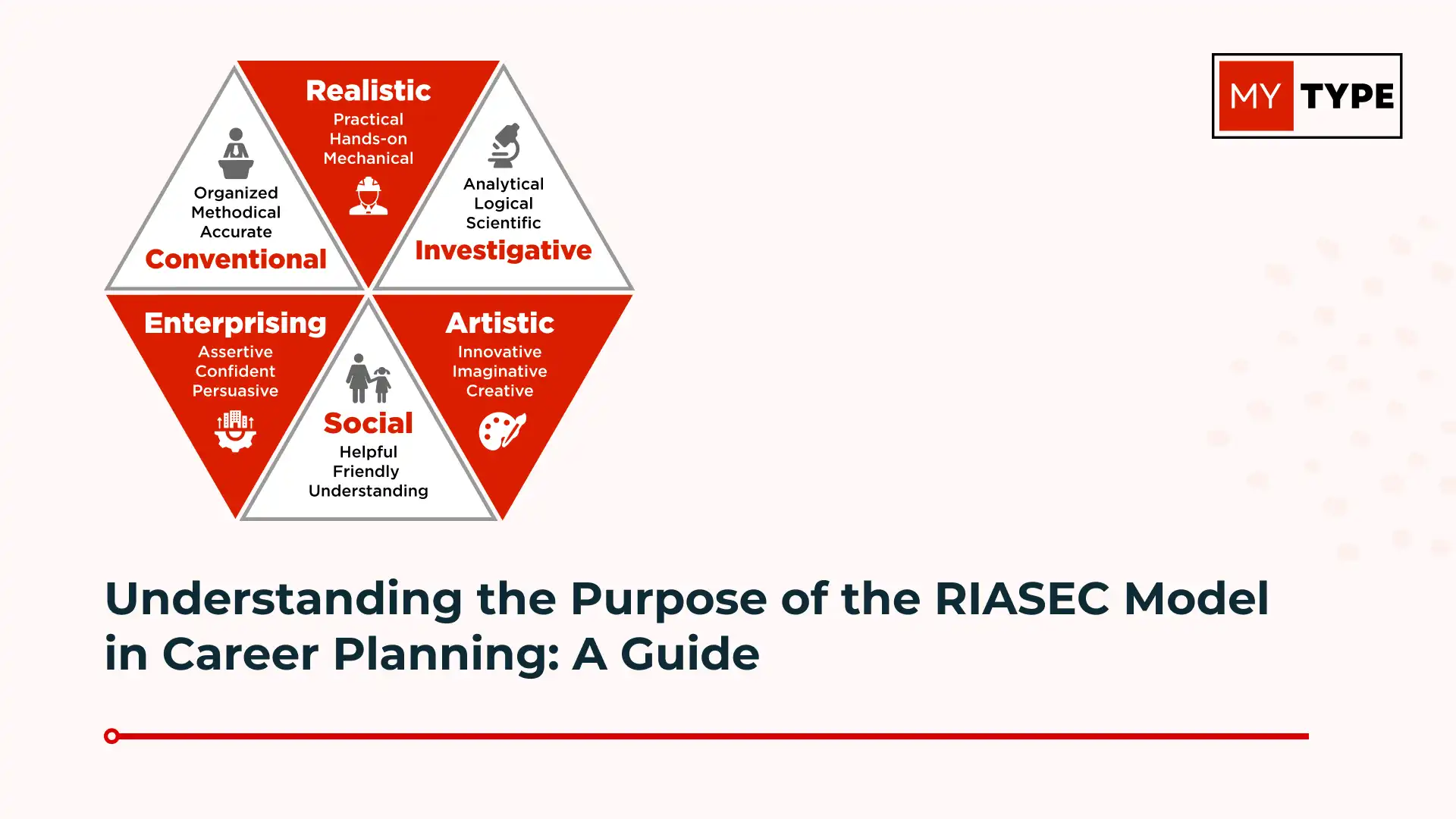Understanding the Purpose of the RIASEC Model in Career Planning

Purpose of the RIASEC Model in Career Planning, The RIASEC model is a popular career planning tool that helps people understand their interests, identify potential career paths, and make informed decisions about their future. Developed by psychologist and career counsellor John Holland, the model is based on research into how interests, values, and skills influence career choice. By understanding the purpose of the RIASEC model, you can use it to plan your career path and maximize your chances for success.
What is the RIASEC Model?
The RIASEC model stands for the six major occupational themes found in career counselling: Realistic, Investigative, Artistic, Social, Enterprising, and Conventional. It’s a way to help people understand their interests, values, skills, and abilities in order to make informed decisions about their future.
The model also provides a framework for understanding how different occupations fit into different categories. For instance, a doctor may be considered a Realistic type, while an artist may be an Artistic type. By understanding the different occupational themes, people can better identify their interests and determine which types of jobs may be a good fit for them.
How Does the RIASEC Model Work?
The Holland codes model is based on the idea that people’s interests, values, and skills influence their career choices. To help people understand their interests and identify possible career paths, the model uses a six-letter code. Each letter stands for a different occupational theme.
The six letters in the code are:
R – Realistic
I – Investigative
A – Artistic
S – Social
E – Enterprising
C – Conventional
The code can be used to describe a person’s interests and values, as well as the types of jobs they may be suited for. For instance, someone with a RIASEC code of RAIS may be interested in jobs that involve problem-solving and creative expression, such as engineering or art direction.
How Can the RIASEC Model Help People with Career Planning?
The RIASEC model is a useful tool for helping people understand their interests, values, and skills, and how they relate to potential career paths. It can be used to assess a person’s strengths and weaknesses and provide a framework for exploring different job options.
The model can also be used to identify potential jobs or industries that may be a good fit for a person. By understanding the different occupational themes, people can better understand their interests and skills, and identify potential career paths that may be a good fit for them.
What Are the Benefits of Using the RIASEC Model?
Using the RIASEC model can help people make informed decisions about their future. It provides a framework for understanding how different occupations fit into the different categories and can help people identify potential career paths that may be a good fit for them.
The model also encourages people to consider a variety of different job options and explore different career paths. By understanding the different occupational themes, people can better understand their interests and values, and identify potential jobs that may be a good fit for them.
Conclusion
The RIASEC model is a valuable tool for helping people understand their interests, values, and skills, and how they relate to potential career paths. By understanding the purpose of the model, people can use it to identify potential job options, explore different career paths, and make informed decisions about their future.
Frequently Asked Questions (FAQs)
What is the RIASEC model and how does it relate to career planning?
The RIASEC model, also known as the Holland Codes, is a framework that categorizes personalities and work environments into six distinct types. These types are Realistic, Investigative, Artistic, Social, Enterprising, and Conventional. The model relates to career planning by helping individuals identify careers that align with their personality traits, thus aiding in making informed and fulfilling career choices.
How can the RIASEC model help individuals understand their own interests and preferences in terms of career choices?
The RIASEC model provides individuals with insights into their dominant personality traits. By understanding which categories resonate with them the most, individuals can gain clarity about their interests, preferences, and potential career paths that match their strengths and inclinations.
What are the six types of personality traits measured by the RIASEC model?
The six personality types measured by the RIASEC model are:
Realistic: Practical, hands-on, and physical activities. Investigative: Analytical, scientific, and research-oriented pursuits. Artistic: Creative and imaginative endeavours in various forms of expression. Social: People-centered and compassionate roles, often involving helping others. Enterprising: Leadership, entrepreneurial, and persuasive roles. Conventional: Detail-oriented and organized tasks in structured environments.
How can career counselors and advisors use the RIASEC model to guide individuals in finding suitable career paths?
Career counselors and advisors can administer RIASEC assessments to individuals, helping them discover their dominant personality traits. Based on the results, counsellors can suggest career options that align with these traits, ensuring a better fit between an individual's preferences and their chosen career path.
Are there any limitations or criticisms of the RIASEC model that individuals should be aware of when using it for career planning?
While the RIASEC model is a valuable tool, it's essential to consider its limitations. Individuals should be aware that:
People may exhibit traits from multiple categories, making a single category less definitive. Cultural and environmental factors may impact a person's preferences, which the model might not fully account for. The model does not consider other essential factors like skills, values, and personal circumstances that influence career choices.